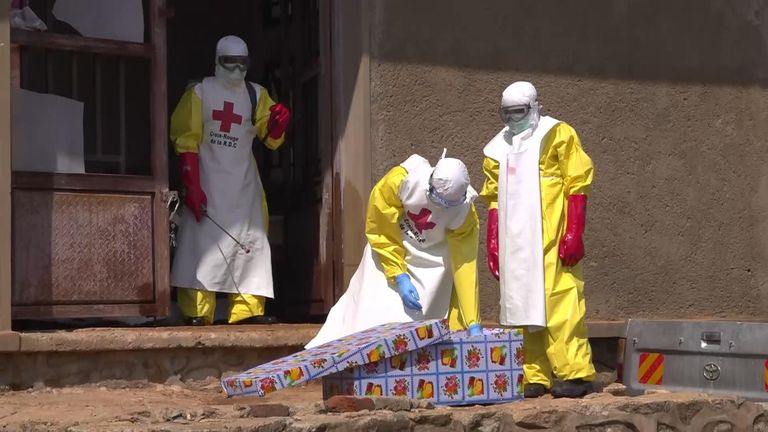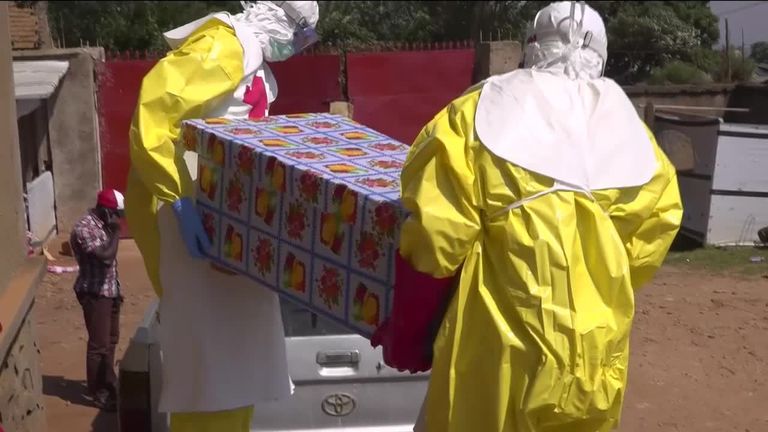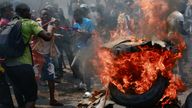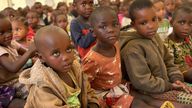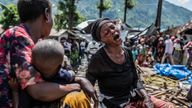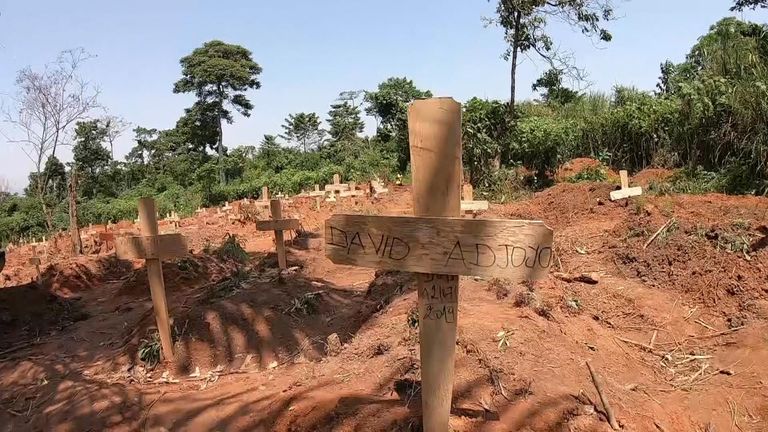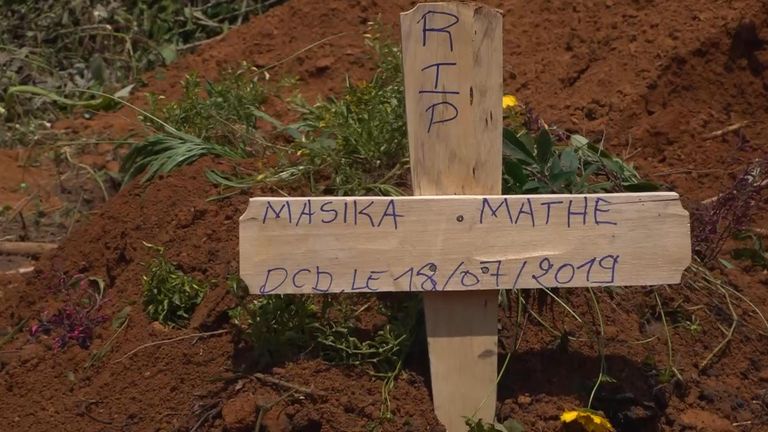Ebola forcing Congolese to change the way they bury the dead
Traditional rituals have been replaced by an elaborate process designed to halt the spread of infection.
Thursday 18 July 2019 22:25, UK
In Beni, they have changed the way they bury the dead.
There is little ceremony now and there are no public prayers. Instead, traditional rituals have been replaced by an elaborate process designed to halt the spread of infection.
This morning, at the city morgue, there was a little coffin sitting in front of the main door. It was wrapped in decorative plastic and it had been built for a baby or a small child.
There was a baby inside who had died during child birth just a few hours earlier. The little girl was suspected of contracting Ebola and the mother was gravely ill.
However, I could see the child's grandmother looking on from the side. After a few minutes a man in a protective suit told her she could take a look at the body.
She approached slowly as the burial team sprayed the path with disinfectant and she quickly glanced at the child. But she was not allowed to linger and she could not touch the body as Congolese tradition dictates.
An official from the Red Cross told me why.
"We are careful because every dead body [in Beni] is suspected of Ebola," said Cleophas Vyavuwa.
"The virus is so dangerous that if we touched it without protection we risk losing our lives."
The coffin was loaded onto the back of a pick-up truck, then driven through town.
I could see the locals keeping their distance. People on motorcycles passed on the far side of the road as if they risked contamination if they came too close.
Clearly, most residents are afraid and there are some who simply don't want to know - itself a product of fear.
It is a major reason why the World Health Organisation has re-classified this outbreak as a global emergency with some 1,700 losing their lives.
The pickup stopped at an ad-hoc burial ground that has been carved from the forest outside Beni. Men with heavy-duty gloves weaved around the freshly dug graves as they carried the coffin to its designated spot.
The relatives of the dead, like Muhindo Mathe, the child's grandfather, were told to keep their distance and that is extremely difficult for some. Family members are supposed to organise the funeral - it is they who decide where their loved ones are laid to rest.
Mr Mathe said: "We are losing our family members and you know, in our culture, people would come and see you and give messages of compassion but that isn't possible today."
The family of the little girl, who was named Masika Mathe, have followed the rules - they have the permitted members of the Red Cross to bury the child.
But there are many Congolese who have not and it has fuelled the spread of Ebola.
Susana Rico, who works for the World Food Programme, is one of the most experienced coordinators on the ground and told me that this is a crucial argument that has to be won if they are going to rid this region of Ebola.
She said: "Just allowing someone else to handle that body is a leap culturally, but that has to be overcome - even if it is an enormous change.
"Where we have seen the community taking charge, it begins to change. It is happening in some communities."
